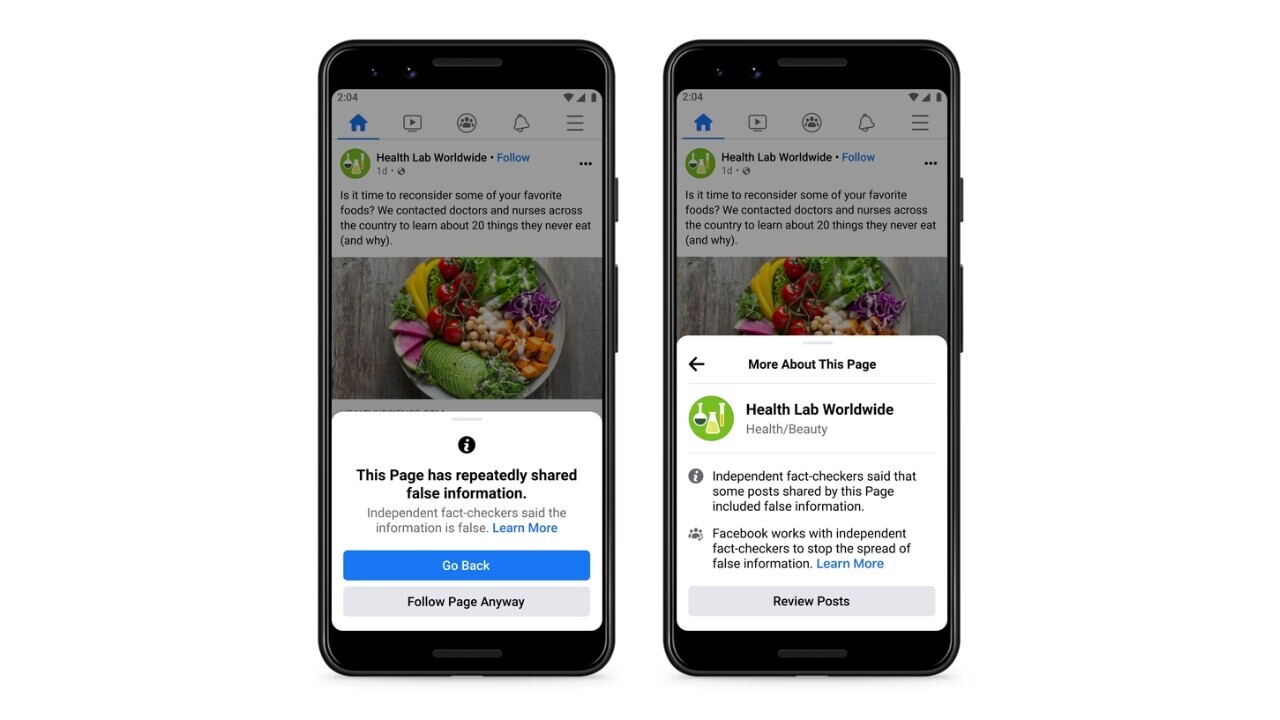
Facebook is ready to call out pages that share misinformation repeatedly. The company is debuting a new label that says “This page shares misinformation repeatedly” when you like the page.
The firm will link to posts that have been debunked by authorized fact-checkers in the pop-up with more information. That’s a pretty good idea for steering people away from pages that mislead people. But what if someone’s already liked the page? No warning sign for them?
Facebook didn’t detail its criterion to determine what constitutes ‘repeatedly’ sharing misinformation. We’ve asked the firm for more details, and we’ll update the story if we hear back.
The social networking giant will also punish individual accounts that are serial misinformation sharers, by “de-ranking” them. That means you’ll see their posts on your News Feed less often.
[Read: This dude drove an EV from the Netherlands to New Zealand — here are his 3 top road trip tips]
Facebook has also redesigned its notification that debunks misinformation. It’s made it easier to understand what information is being fabricated, and now it includes links to accurately sourced details to correct details by fact-checkers.

Last night, Facebook also said that it won’t remove posts claiming that the coronavirus was manufactured in a lab. The company told Politico that this step was taken after “consultation with public health experts.” Meanwhile, US President Joe Biden has asked the country’s intelligence organizations to ramp up its efforts in finding the origin of the COVID-19 virus and report back in 90 days.
Get the TNW newsletter
Get the most important tech news in your inbox each week.




